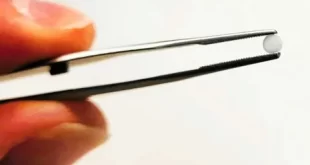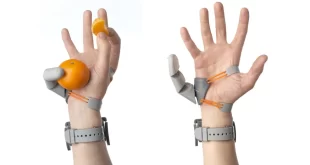Position Summary
Our lab has an opening for a postdoctoral research associate. Are you interested in aging, biomarkers, Alzheimer’s disease (AD), machine learning, driving/community mobility, and/or geographic information system? This may be the role for you. This position advances three ongoing NIH/NIA R01-funded grants investigating the long-term impact of AD brain pathology on functional behavior among persons with and without preclinical AD. Our research collects clinical, neurological, and neuropsychological data, mood, social determinants of health, a standardized road test, and naturalistic driving behavior using the Driving Real-world In-Vehicle Evaluation System. We also collect biomarkers to study AD pathology, including brain imaging (Positron Emission Tomography, Magnetic Resonance Imaging) and fluid-based (cerebrospinal fluid, blood/plasma) biomarkers.
We now seek a postdoctoral research associate with strong statistical and/or computer science skills to analyze high-fidelity data relating to studying underlying preclinical and prodromal AD. The successful candidate will join a dynamic, collaborative, growing laboratory and work directly with Dr. Ganesh Babulal to develop new models to examine and visualize changes in older adults. The postdoctoral researcher will have the opportunity to work with world leaders in aging research, including experts in fluid biomarkers, brain imaging, genetics, and cognitive assessments.
We now seek a postdoctoral research associate with strong statistical skills to analyze high fidelity data relating to whether daily driving behavior reflects underlying neuropathological AD and is associated with prevalent and incident cognitive impairment. The successful candidate will join a dynamic, collaborative, and growing laboratory, and will work directly with Dr. Ganesh Babulal to develop new models to examine and visualize changes in driving behavior. The postdoctoral researcher will have the opportunity to work with world leaders in AD research, including experts in fluid biomarkers, brain imaging, genetics, and cognitive assessments. In addition to high-quality research facilities, career and professional development training for postdoctoral researchers is provided through the Career Center, Teaching Center, Office of Postdoctoral Affairs, and campus groups.
More information on being a postdoc at Washington University in St. Louis can be found at https://postdoc.wustl.edu/prospective-postdocs-2/.
This appointment is viewed as a training or transitional period preparatory to an academic, industrial, governmental, or other full-time research or teaching career.
Primary Duties and Responsibilities
Trains under the supervision of a faculty mentor including (but not limited to):
- Develops working knowledge in Alzheimer’s disease and related dementia, aging, and driving.
- Develops proficiency in analytical skills with a particular focus on longitudinal analysis.
- Manages their projects based on large datasets, which should lead to at least three first-author publications/annually.
- Develops proficiency in their ancillary skills, e.g., writing, public speaking, networking, critical evaluation of scientific documents, etc.
- Presents scientific work both inside and outside the university.
- Assists with grant preparation and reporting.
- Prepares and submits papers on research.
- Evaluates research findings and assists in the reporting of the results.
- Maintains compliance with good laboratory practice, including the maintenance of adequate research records.
- Engages in open and timely discussion with their mentor regarding possession or distribution of material, reagents, or records belonging to their laboratory and any proposed disclosure of findings or techniques privately or in publications.
- Maintains collegial conduct towards co-trainees, staff members, and all members of the research group.
- Adheres to all applicable university policies, procedures, and regulations.
Required Qualifications
Ph.D., M.D. or equivalent terminal or doctoral degree.
Working Conditions
This position works in a laboratory environment with potential exposure to biological and chemical hazards. The individual must be physically able to wear protective equipment and to provide standard care to research animals.
Salary Range
Base pay is commensurate with experience.
Applicant Special Instructions
Please email a curriculum vitae, a statement of research experience and interests, the names and contact information for at least three scientific references to Dr. Ganesh Babulal: babulalg@wustl.edu.
Questions
For frequently asked questions about the application process, please refer to our External Applicant FAQ.
Accommodation
If you are unable to use our online application system and would like an accommodation, please email CandidateQuestions@wustl.edu or call the dedicated accommodation inquiry number at 314-935-1149 and leave a voicemail with the nature of your request.
Características del Puesto
| Categoría de Puesto | Postdoctoral |
 Etudes Non Stop Estudio sin parar
Etudes Non Stop Estudio sin parar



